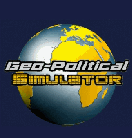 |
 |
November 2009
Hello to all of you Heads of States ! A warm welcome goes to the new leaders coming from Italy, where the Italian version of the game has just been released !
Note : This newsletter has a new feature : Professor Archibald Rainwater’s column. The Professor will respond to selected questions from subscribers.
Happy Reading !
CONTENTS
- MISCELLANEOUS
- COMMUNITY COLUMN
- TIPS FROM PRESIDENT FIDEL WASHINGSKY
- PROFESSEUR ARCHIBALD RAINWATER ANSWERS
- TIPS
- A NEW WORLD
- DID YOU KNOW ?
- UPCOMING ELECTIONS
MISCELLANEOUS
-For new subscribers: If you would like to receive former newsletters on game content, click on the clink at the end of this newsletter.
COMMUNITY COLUMN
-
-Poll
We are interested in your opinion of the Geo-Political Simulator, and in what improvements you would like to see. Take a poll on the game’s website: http://www.geo-political-simulator.com/index.php?page=poll_1109&langue=en
-Among the game’s many forums, this is the most popular one, in English : http://geopoliticalsimulator.freeforums.org/index.php
-Correspondants:
If you would like to share important data on your country, feel free to reach us at:contact@geo-political-simulator.com.
TIPS FROM PRESIDENT FIDEL WASHINGSKY
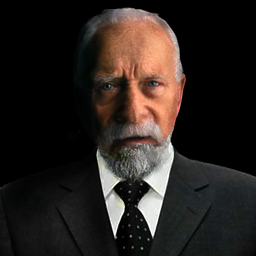 |
« For me it’s easy. When a law is being blocked by a few wretched votes, I can’t be bothered : I promptly order my faithful secret agents to investigate uncooperative parliament members. In this bunch there are always some tempted by money. An appointment with them and boom, the deal is done, in exchange for a vote. Afterwards, I just have to hold up the rule of law and be a little patient… » |
PROFESSOR ARCHIBALD RAINWATER ANSWERS
In this new column, Professor Archibald Rainwater, honorary professor of geopolitics, macroeconomics, and sociology, responds to your questions.
I’m playing Turkey and I want to join the European Union. Is this possible ?
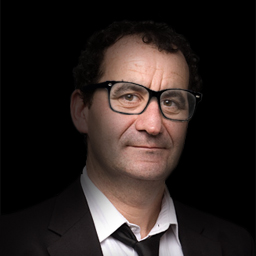 |
A country that wishes to join the European Union must first be on the European continent, or at least on its borders. It must also respect some general political, economic, and institutional criteria (« the Copenhagen criteria »). In a nutshell, the accession country must be a democracy and respect human and minority rights, and have an economy whose value accurately reflects the budget deficit, inflation, and growth. The request for accession is then submitted to a vote to all EU countries, who must then issue a unanimous decision. Prior to the accession request, it is thus in the country’s interest to be on good terms with the member states. |
After a few years pass in the game, sometimes I end up being excluded from the European Union. What should I do ? NB : I’m playing Italy.
 |
A country that wishes to join the European Union must first be on the European continent, or at least on its borders.
It must also respect some general political, economic, and institutional criteria (« the Copenhagen criteria »). |
TIPS
You might not have known, but there is a strange sect that is prowling around the game : the Eversim sect ! This sect is composed of pre-eminent members of the mysterious company of the same name. If you manage to completely unmask this sect, you will be able to access new functions.
You will need to find, make an appointment and lead a spiritual investigation of all the members of the sect, who are hidden behind many of the game’s figures. Two clues : There are 10 of them, and they keep their real names in the game.
A NEW WORLD
These screen captures are taken from a long match with the United States.
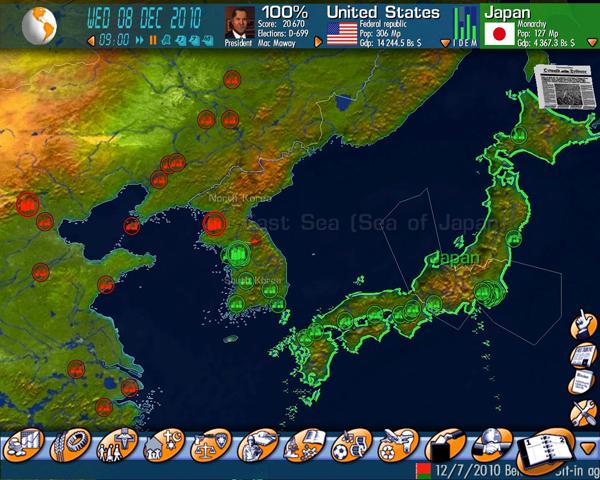
At the start of the game, each of the two Koreas has its own territory. These two nations, with opposing ideologies, are archenemies. They constitute one of the most confrontational parts of the world. South Korea, in green, is a U.S. ally, and North Korea, in red, is a major enemy (part of George W. Bush’s Axis of Evil).
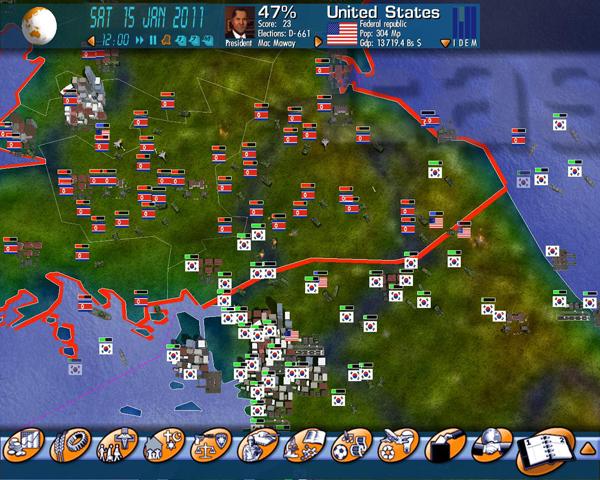
After several provocations from both sides, the tension rises rapidly, with South Korea leading a massive attack against its neighbor in the end. On the screen capture, the South Korean troops are starting to infiltrate the Northern territory, with the objective to rapidly topple the capital of Pyongyang.
We Americans support this offensive, in hopes that it will quickly bring the conflict to a close. China, North Korea’s ally, will not have time to intervene, especially as it has recently warmed up to South Korea and the United States.
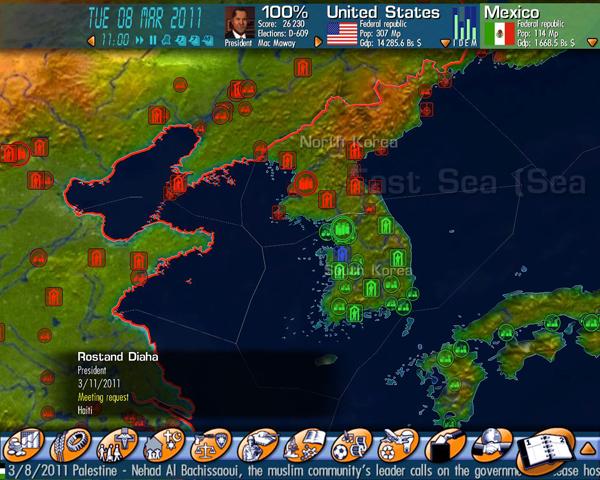
After three months of conflict, Pyongyang has fallen; the North Koreans have not used the atomic bomb; the Democratic People’s Republic of Korea has given up power, which its neighbor now holds. The two territories are now one. The Korean people have been reunited under the Southern flag, and the U.S. is congratulating itself on this change : A nuclear threat has been taken off the map !
DID YOU KNOW ?
Germany has celebrated the 20th anniversary of the fall of the Berlin Wall. But elsewhere, there are still other barriers that divide the people. While the most well-known are indeed physical barriers – on the U.S.-Mexico border, and the Israeli-Palestinian border—there are also other barriers—less « concrete » but just as impassable. The most prominent one today is surely the demilitarized zone (DMZ) that separates the two Koreas.
Located on the 38th parallel, this strip four kilometers wide has the world’s largest concentration of armed forces. At the center of this zone is the village of Panmunjom, where the armistice ending the end of the Korean War was signed. Since then this village has been under the UN’s control, and is split exactly in two. Even the table where the negotiations were signed is separated by a demarcation line.
On both sides of the zone, the villages in the North and the South spread propaganda for their respective countries—in light of the fact that telescopes on the other side make them visible. In the South, the « Freedom Village », a peasant village, is exempt from taxes, but does have a strict daily curfew at 11 pm. Spacious homes can be found in the « Freedom Village ». In the North, Kijong Dong, dubbed as « Hollywood » by the South, is a film-set village that is uninhabited but where there is always laundry to dry, strangely enough. Kijong Dong has the largest flag in the world, waving from the top of a gigantic derrick-like tower.
Many tourist agencies in Seoul offer tours of Panmunjon.
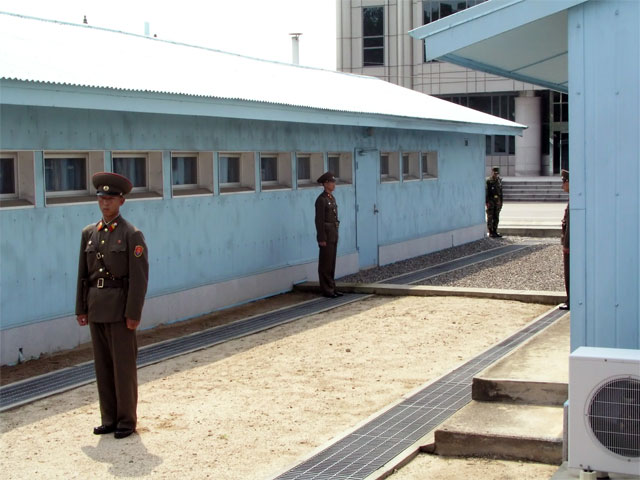
image under GFDL licence
UPCOMING ELECTIONS
As usual, our world tour of election news from the next few months:
Three presidential elections in Europe, and all of the former Soviet republics are holding elections : Romania (November 22), where two candidates who previously governed together now confront one another ; Croatia (January 10), and Ukraine (January 17). The Ukrainians will go to vote for the 5th time since their independence.
In Africa, many elections are on the program, often under very particular circumstances : the Ivory Coast (November 29), whose presidential vote has been put off since 2005, will finally take place in hopes that the country will get itself out of the political crisis it has been in since the 2002 putsch. Comoros (November 29), with legislative elections that should put an end to the political vacuum which has existed since June, when the mandates of the parliament members officially expired. Equatorial Guinea (November 29), where the current president Teodoro Obiang Nguema has been in power for 30 years since the 1979 coup d’état, and who is candidate to his own succession. Parliamentary and presidential elections in Namibia (November 27). Guinea (January 31) and Niger (November 27) will just be holding their presidential elections.
Three elections to note in Asia : Legislative elections in Uzbekistan (December 27) and Iraq (January 16), governed by multi-confessional coalition. Presidential and legislative elections in Palestine (January 24), which is already looking tense with the call for a boycott by the Hamas, who has also threatened sanctions against anyone who goes to vote.
Lastly, South America is rich in electoral events—as it has been since the beginning of the year : Bolivia (December 6) with its presidential and legislative elections. The same elections in Honduras (November 29), which will mark the first votes since the June 2009 coup d’état and which might not be recognized by the international community. Chile (December 13), where the Chilean people will choose a successor to Michelle Bachelet, who constitutionally cannot present herself again as a candidate. Uruguay (November 28) will have its second presidential election round where the ex-guerilla José Mujica has clearly come ahead of the former president Alberto Luis Lacalle Herrera.
Thanks for reading and see you soon!
The Eversim team.
You receive this newsletter because you are a subscriber.
To receive former newsletter editions, click on this link: Geo-Political Simulator newsletters archives
To unsubscribe, click on this link.
© Eversim, All rights reserved.